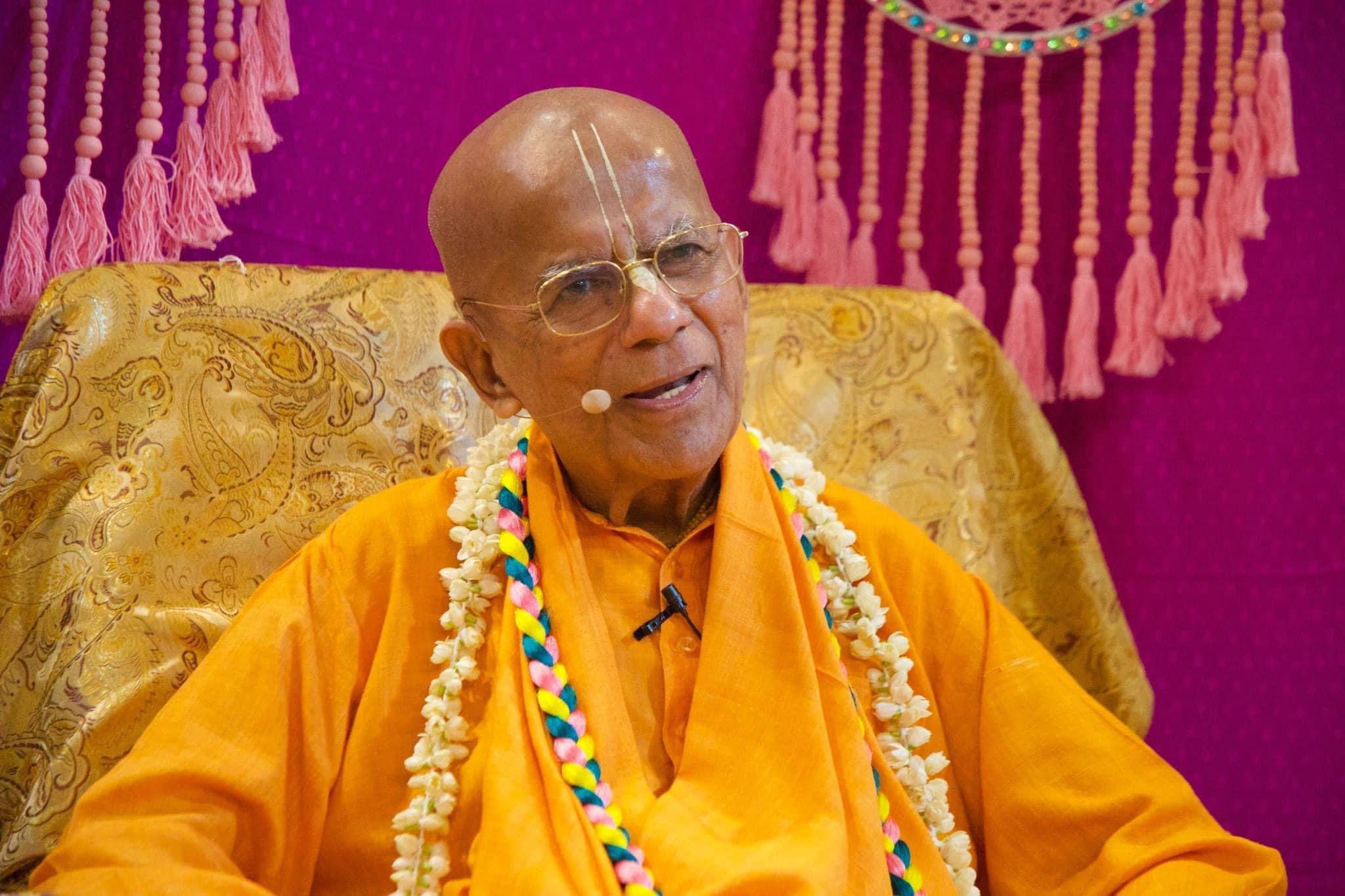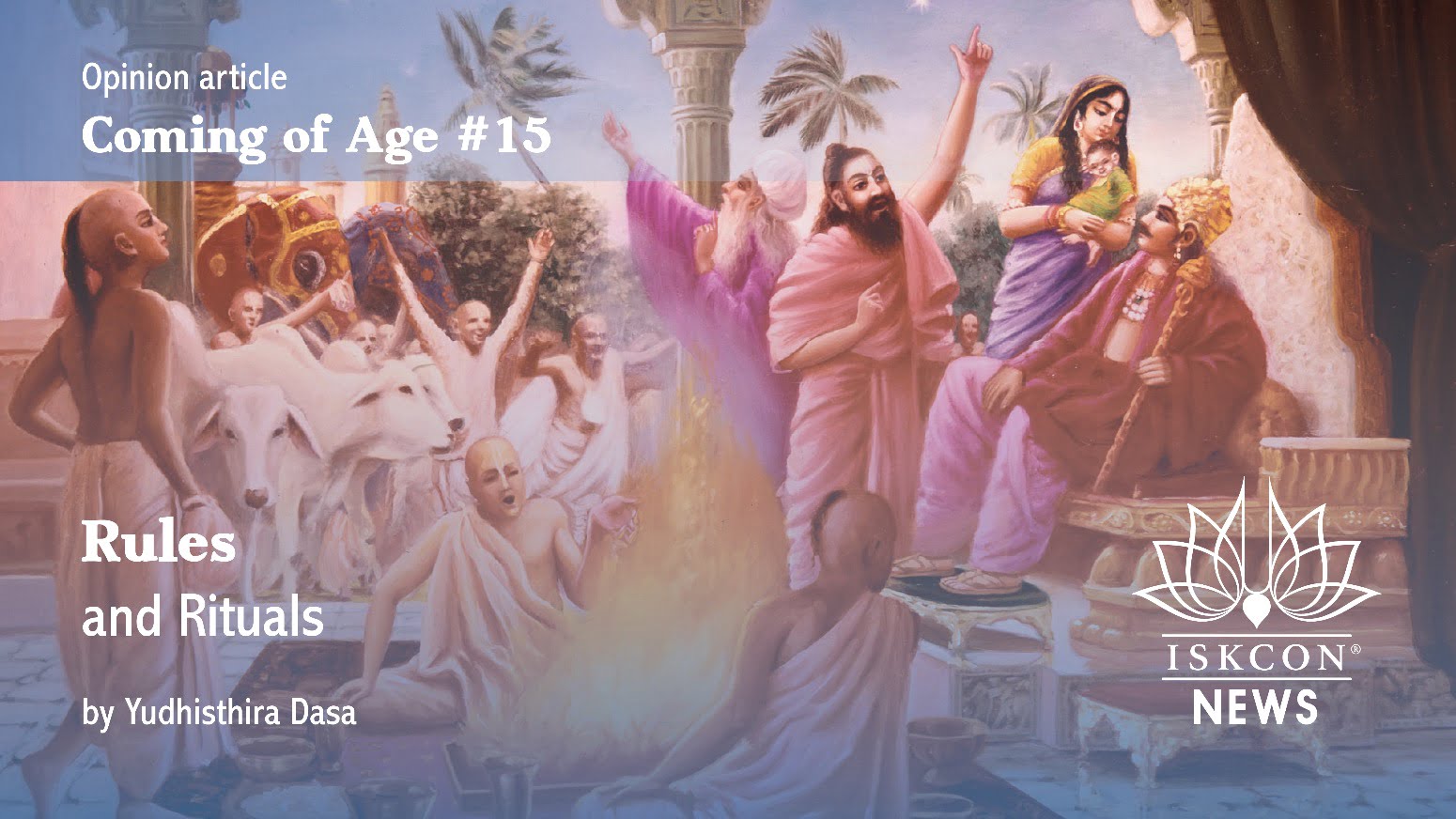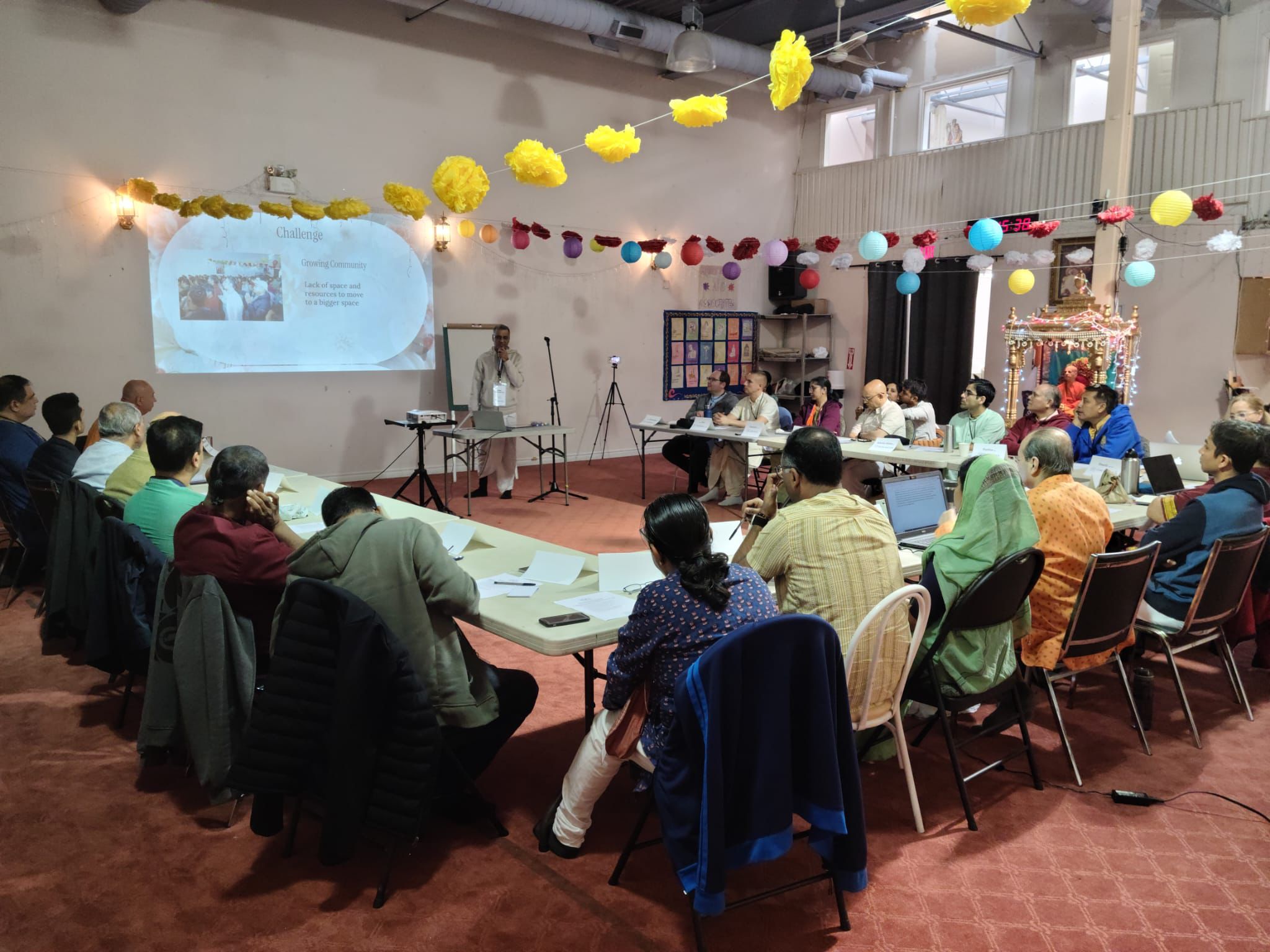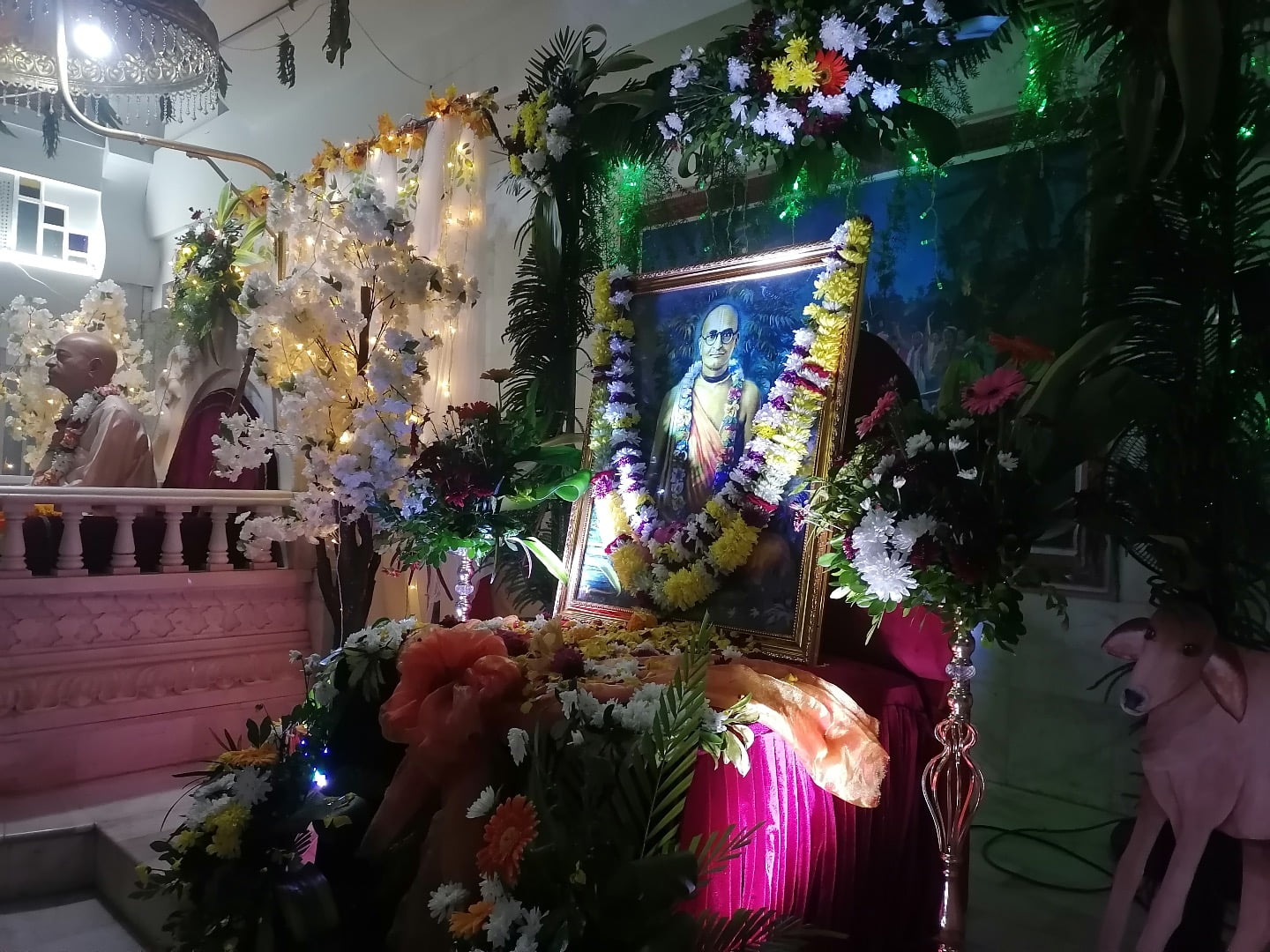New Book Vanity Karma Explores the Meaning of Life
By Madhava Smullen | Jul 23, 2015
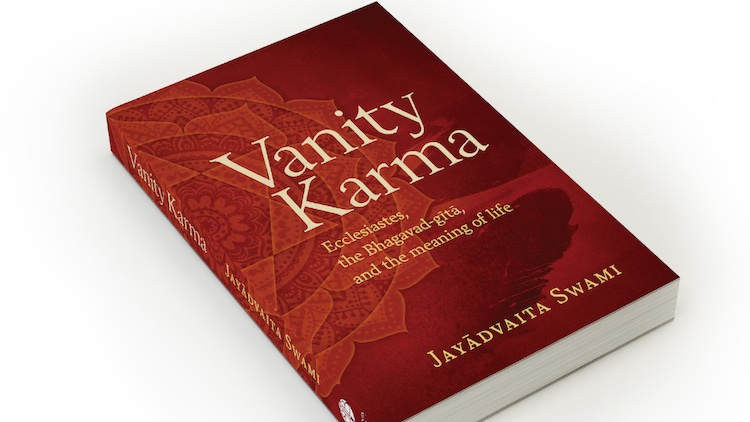
In his new book Vanity Karma: Ecclesiastes, the Bhagavad-gita, and the Search for the Meaning of Life, ISKCON guru and BBT trustee Jayadvaita Swami explores the works that set him on his spiritual path in the hopes that they may help others on theirs.
“Both books deal with questions crucial to the life of an intelligent human being,” he says. “And people have turned to both of them, over the centuries, as books of profound wisdom.”
Ecclesiastes is a book of the Old Testament of the Bible, featuring a first-person account by a sage seeking answers about the meaning of life. It’s considered the most radically powerful wisdom book of the Hebrew scriptures.
In it, the author describes how he sought value first in the pursuit of pleasure, then in wisdom, but found them both meaningless. The wise man and the fool, he writes, both go to the same grave. So what is the use?
The sage argues that life on earth is pointless, that we spend it working hard for “vanity,” for nothing better than vapor—and then die and disappear into oblivion. Still, he notes that God has given us a small amount of enjoyment, and that we should accept this as a gift.
Despite this somewhat bleak outlook, in the course of his thoughts the sage expresses many deep and profound thoughts and raises questions relevant to devotees on the path of Krishna consciousness — and to anyone seriously seeking the meaning of life.
As a young Jewish American in the 1960s, Jayadvaita Swami was one of these seekers, and was profoundly moved by the themes of Ecclesiastes.
“The author cries out, ‘All is vanity!’ referring not to pride but to uselessness, emptiness, pointlessness – all is in vain,” he says. “When I first read the book, that hit me hard. It at once struck me as true: This whole world is meaningless. And, back then, I didn’t know of anything higher.”
But reading Ecclesiastes set him on a quest that led him to the Bhagavad-gita, India’s preeminent book of wisdom.
Now, after being a follower of the Gita’s teachings for more than forty-five years, Jayadvaita Swami is presenting the themes raised by Ecclesiastes from the perspective of a follower of the Bhagavad-gita in Vanity Karma.

Vanity Karma author Jayadvaita Swami
“Often, Ecclesiastes and the Gita are in agreement,” he says. “But the Bhagavad-gita is to me more satisfying because Ecclesiastes views the world from a narrow, one-life viewpoint whereas the Gita has a broader outlook, giving us a picture of many lives. When you look at life within the boundaries of one birth and death, everything really does look meaningless: ‘Life is tough, and then you die.’ When we take many lifetimes into account, things start to make more sense.”
He adds: “In Ecclesiastes there’s hardly even a hint of bhakti, devotional service. There’s God, but he’s distant, and more a source of trouble than of love. From the Gita, we get a much more satisfying view.”
The title of Jaydavaita Swami’s book, “Vanity Karma” evokes key words in both Biblical and Vedic traditions, which when put together can mean “meaningless work.” Of course, the work itself shows that we must look beyond that to find true satisfaction in life.
Vanity Karma includes a complete rendering in modern English of all 12 chapters and 222 verses of Ecclesiastes, with Jayadvaita Swami’s commentary on each verse along with meticulous notes and sources.
“In these two books — the Bhagavad-gita and Ecclesiastes — we see the daily issues of our world in a different way as we rise above them to consider what life is for, what ultimate profit we can gain from it, what meaning, what happiness, what lasting value,” Jayadvaita Swami says.
As well as being for anyone serious about the important questions in life, Vanity Karma is also aimed at people interested in interreligious dialogue and those studying academic fields such as Comparative Theology, Indo-Judaic studies, Old Testament studies, Hindu studies, and more.
Jayadvaita Swami feels that younger devotees born into Krishna consciousness may also find it of special interest. “Young devotees have several times said to me that they have a certain inherited, ‘baseline’ level of Krishna consciousness, but not as intense as that of the devotees who joined in Srila Prabhupada’s days,” he says. “What has to happen in your life, they ask, to ignite that kind of intensity? This books tells what happened in my life, and they may find it relevant to theirs.”
Vanity Karma is available now for pre-order at Amazon.com. It will be released on September 28th, the first day of the Jewish holiday of Sukkoth, in which Ecclesiastes is traditionally read.
Jayadvaita Swami hopes that people get as much out of reading it as he has out of writing it.
“On one side, I got to appreciate the depth of thought found in Ecclesiastes, in its traditional commentators, and in some modern academic studies of the book,” he says. “On the other side, it made me ever more grateful to Srila Prabhupada for showing me how to get free from vanity karma and come to blissful life in the eternal service of Krishna.”






